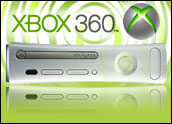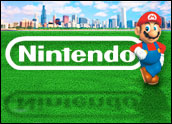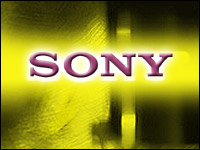
It was another mixed bag of news for the gaming industry over the past week. Financial papers filed with the Internal Revenue Service revealed that while 2007 and 2008 were strong years for the U.S. gaming industry, the Entertainment Software Association (ESA), the industry’s trade association, did not fare as well.
Sony reached a milestone with its PlayStation Network — it now sports a subscriber roll of some 20 million gamers, the company announced on Wednesday. Earlier in the week, the console maker announced its 2009 line-up of titles for its PlayStation Portable (PSP) game device.
Finally, word came that the U.S. Court of Appeals has once again struck down the 2005 California law that sought to prohibit the sale or rental of violent video games to minors.
Good for the Goose, Not So Much for the Gander
While the gaming industry took in nearly $18 billion in 2007 and over $21 billion in 2008, the ESA has reportedly been losing money. As spotted by GameSpot.com, the ESA’s 2008 tax report indicates that for the fiscal year ending in March 31, 2008, the organization’s income-generating activities yielded roughly US$1 million less than the previous year. Income for the group fell from $29.02 million in 2007 to $28.21 million last year.
Responsible for the industry’s game rating system and the Electronic Entertainment Expo (E3) gaming conference, the ESA now earns the bulk of its income from membership dues. Where once E3 provided a significant portion of the organization’s annual budget — bringing in some $18.46 million in 2006 — the recent downsizing of the event’s audience from tens of thousands of attendees to around 5,000 earned the ESA a scant $3.49 million in 2007.
To make up for the shortfall, the group has reportedly increased membership dues by several hundred percent, going from a total take of $4.47 million in fiscal year 2007 to $17.41 million in the last fiscal year.
One has to wonder whether the group’s members will make it a priority to pay their dues as studios large and small try to cut costs in this challenging economic climate. Could the ESA go the way of the dinosaur?
Sony in the News
Moving on to Sony, the hardware maker has finally beaten a Microsoft stat in the console gaming wars. As of Feb. 20, there are now 20 million gamers with registered accounts on the PlayStation Network, according to an announcement released Wednesday. That’s roughly 3 million more than Microsoft last reported for its Xbox Live subscription service. And it only took 2 years and 3 months from its Nov. 11, 2006 Japanese launch date.
There’s just one caveat: The PS Network is free, while Xbox Live users can opt for either a free or paid subscription. According to a recent report in the Seattle Post-Intelligencer, some 56 percent of Xbox Live users chose the “Gold” paid subscription that enables online game play with others, than the free “Silver” version that just allows them to access downloadable content. Hmmm … which would you choose? Fewer subscribers who pay, or a bunch of freeloaders?
Sony also revealed its list of new PSP bundles and titles for 2009 at its annual retail and publisher conference, Destination PlayStation, held in Scottsdale, Ariz. For its portable console, Sony plans to ride the coattails of Miley Cyrus with a Hannah Montana PSP Entertainment Pack, which will include the introduction of the “Lilac” PSP system, Disney Interactive’s Hannah Montana game for the PSP and other goodies. Both packs will be priced at $199.
For those of slightly different tastes, there will be an “Assassin’s Creed” bundle that will debut an exclusive installment of the franchise for the PSP set to come out later this year. The bundle will include the game, a “Piano Black” PSP and other as of yet unannounced content.
Game maker Ubisoft will offer a line of PSP games from its popular casual “Petz” game, and Harmonix, creator of the “Rock Band” franchise, will bring “Rock Band Unplugged” to the PSP. EA’s monster franchise “Madden NFL” will debut its 10th installment on the PSP, and Sony plans to offer a “LittleBigPlanet” for the portable console as well.
With some 50 million of the games sold to date worldwide, Sony is clearly trying to attract users outside its usual circle with offers like the Hannah Montana bundle.
Could there be a $100 price cut in store for the PS3? A Janco Partner analyst this week predicted that Sony will lop a Benjamin off the current $400 retail price of the PS3 by April or June at the latest. That would be an astonishing move for a company that has already acknowledged it’s losing money on each console it sells now.
“The hypothetical PS3 price cut is an interesting one … bringing down the price will certainly help sales,” Mark DeLoura, an independent gaming expert, told the E-Commerce Times. “If you look at the sales curve for PS2 over time, it is remarkable how tightly correlated the sell-through is to price. The bigger question that I have is how much Sony has been able to reduce the cost of building each PS3. $100 would be an awful lot of money to forfeit per console if the production costs are still high.”
Legal Wrangling
Strike a blow for freedom. The U.S. Court of Appeals refused another appeal by the state of California to reinstate a law banning the sale of so-called “violent video games” to minors.
The law would have imposed a $1,000 fine on retailers who did not check IDs of customers seeking to purchase a game listed as violent. It quickly became the subject of a lawsuit filed by the Entertainment Merchants Association and the ESA, claiming the law violated their First and Fourteenth Amendment rights to free expression and equal protection.
Calling the law “unduly restrictive,” a federal district court judge barred the enforcement of the law, saying it “used overly broad definitions” and that California failed to show that the limitations the law sought to impose would actually protect children.
“I think everyone in the game industry believes that the ESRB rating system is valuable and should be enforced by the retailers. But I don’t understand why anyone would believe the ratings should be enforced by law when similar rating systems for movies and music are not,” Deloura stated.
“The ultimate choice on media consumption for kids should be made by their parents, certainly. These ratings systems are designed to give parents as much information as possible about the media prior to viewing,” he concluded.













































Social Media
See all Social Media